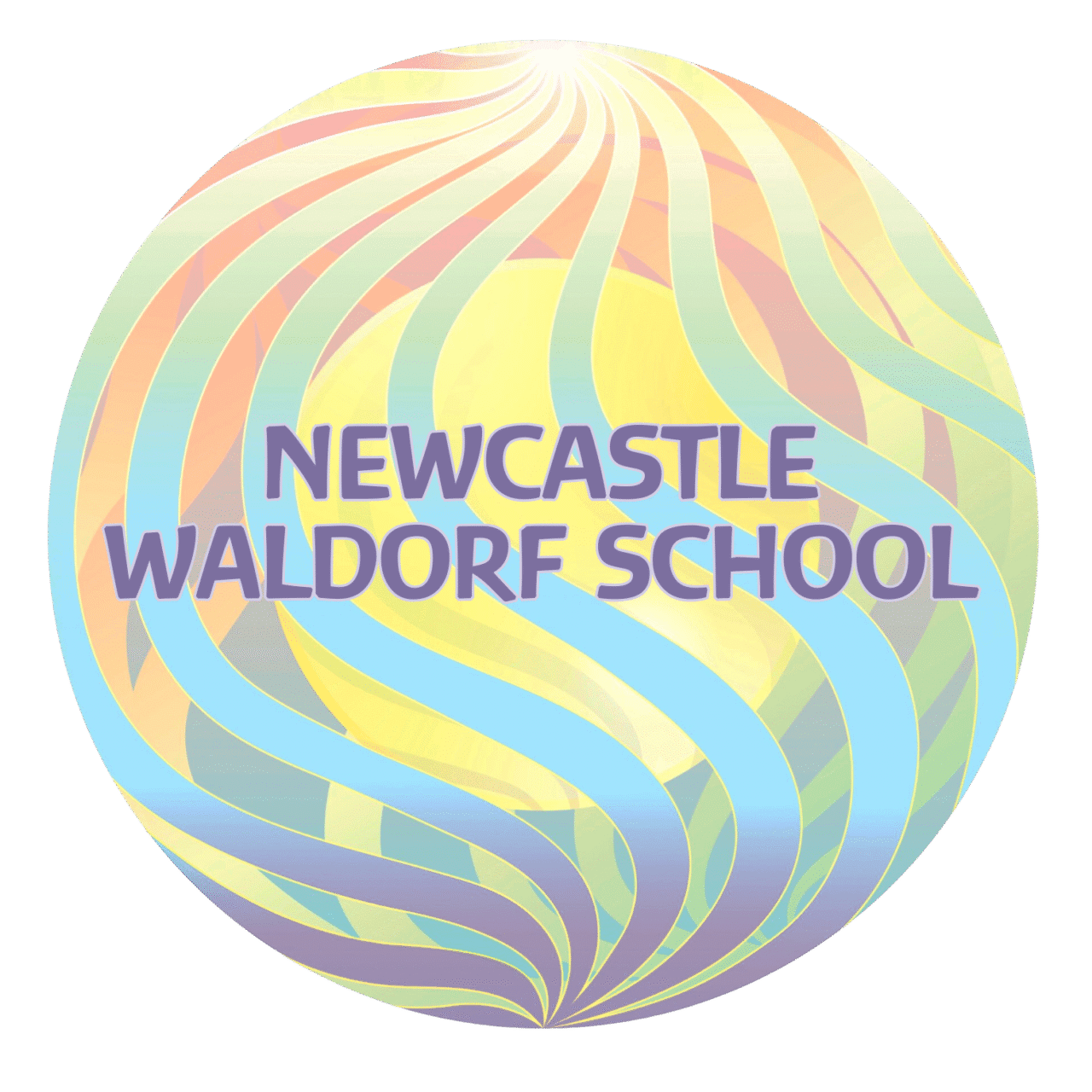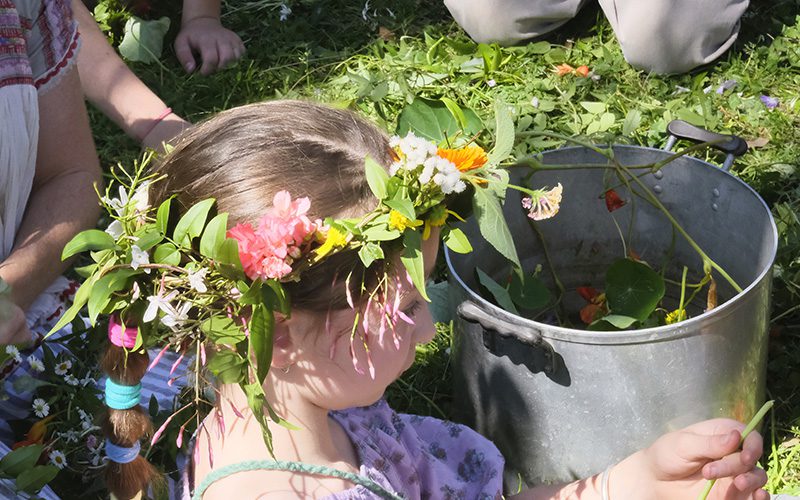Our Unique Approach
Quick Pages
Quick Links
Contact Us

Quick Links
The Role of ‘Main Lesson’
Furthering the concept of Deep Learning
At Newcastle Waldorf School, we deliver each academic subject through a series of ‘big ideas’, which extend over a period of three weeks in high school, and four weeks in primary school. These ‘big ideas’ are taught in blocks of time each morning, between the start of the day and the morning break. These blocks are referred to as the Main Lesson, and they provide between 20-30 hours of explicit instruction in each big idea. Over the course of the year, students will work through twelve Main Lesson blocks that cover the curriculum for English, Mathematics, Science, History and Geography. The Main Lesson is tailored to each class group’s stage of cognitive and emotional development. It provides students the building blocks to develop capacities and skills in each individual subject, while providing opportunities for interdisciplinary units, as concepts overflow from one subject to another.
Ultimately, the block of time for Main Lesson allows for immersion in the ‘big idea’ topic, which:
- For Primary School – may include a narrative story, told in person by the teacher each day, as per the long human tradition of oral story-telling.
- For High School – involves the progression of topics and learning activities to increase each students’ capacity for self-responsibility; broadening perspectives in Years 7 and 8, discovering independence and balancing contrasts in Years 9 and 10, and gaining high level skills of analysis and synthesis in Years 11 and 12.
- Allows for imaginative exploration, evoking a student’s response through creative arts: students illustrate and write to represent their understanding of the content
The Role of ' Extra Lesson'
Learning Support at NWS
All students at Newcastle Waldorf School experience learning through a rich holistic curriculum. Based on the pedagogy of Rudolf Steiner, it is an education of the whole child – mind, body and spirit. The curriculum parallels the developmental stages of the child from Kindergarten to Class 12 and fosters wellbeing and independent thinking. To support this curriculum and to meet the individual in their growth and development we have a specialized team of staff who work with students.
This team includes:
- Learning Support Teacher
- Wellbeing Coordinator
- Classroom Assistants
In the early years, most learning support can be integrated into the daily class rhythms and experiences. Therapeutic movement classes form the basis of support offered in the lower grades. These classes are a part of the weekly program for the whole class.
All primary school and many high school classes receive regular support from classroom assistants who work together with the teachers and support students to fully participate in the activities of the class, assisting with individual adjustments that encourage and strengthen our students. If required, students may engage either in 1:1 or small groups sessions, to enrich their gifts and challenges, with members of our learning support and wellbeing team. Individual Learning Plans are developed when students require specialised support, and parents and carers are encouraged to collaborate with our staff as we develop and implement these plans.
The Role of Music & Art
Music, singing, drawing, and painting are integral aspects of the Newcastle Waldorf School curriculum from Kindergarten through to Class 12. Students engage in concerts, exhibitions, class projects and theatre performances throughout their schooling journey, which allows them to share their talents in a safe environment and provides opportunities for every student to shine.
The benefits of participating in the arts is grounded in research. Students can experience an increase in academic performance, the development of innovative thinking, and management of well-being. In particular, singing has been shown to have psychological, social, physiological and behavioural benefits.
Sharing music and song is a key part of our school’s rhythm. Stories are delivered through song in Kindergarten and the Primary years, all the while students are developing their own voice. Early Primary students will begin singing rounds and continue with more complex songs throughout their school journey. Similarly with musical instruments, younger students are exposed to music from Kindergarten, and will engage with their own recorder in early Primary years. In Class 5, each student will receive an instrument of their choice that they will learn to play while learning to read music.
They will join one of the school orchestras where they will learn to perform increasingly complex pieces by renowned composers. Each week, students from Class 5 through to Class 12 participate in an individualised instrument lesson with a professional tutor. Sharing musical performances with other students is part of the rhythm of the term, and for special occasions the students may share their talents with the wider community.
All students are encouraged to present their class work as beautifully as possible, with accompanying illustrations, diagrams and visual texts to support their communication skills. Artworks, such as sculptures and drawings, are regularly displayed at the school and sometimes in local galleries.
Students from Classes 1 to 9 participate in an annual class play chosen especially for their current learning themes, while those in Classes 10, 11, and 12 have opportunities to take on the challenge of producing, writing, and performing a full musical or play.
This strong emphasis on creativity nurtures students to value their capacities as flexible thinkers, innovative problem-solvers and imaginative, expressive individuals.
The role of Outdoor Education & Excursions
Outdoor Education
Outdoor Education nurtures not only the physical and cognitive development of students but also their emotional, social, and spiritual growth. Through diverse experiences in nature – from forests to beaches – students build resilience, independence, and a deep connection to the environment. Our Outdoor Program is rooted in caring for the whole child, promoting adventure, environmental stewardship, and a sense of belonging to both the land and their community.
In the primary years, Outdoor Education is centred around building independence and comfort in nature, while providing tangible links to the curriculum. Students learn essential camp craft skills and how to look after themselves away from home, such as setting up camp, managing personal responsibilities, and embracing the experience of being in natural surroundings. These activities are carefully linked to Main Lessons to deepen students’ learning.
As students transition into high school, Outdoor Education challenges them to build on their earlier experiences by developing advanced skills and greater self-reliance. Camps become longer, taking students further away from home and testing their physical endurance through activities like canoeing, hiking, and biking. The focus shifts towards leadership and teamwork, with students learning to plan and lead their own expeditions, from mapping out routes to preparing food and gear.
This leadership development is a core component of their outdoor experiences, empowering students to take responsibility for their learning and decision-making in real-world environments.
Curriculum-linked camps, such as the Central Australia trip for Class 10, allow students to connect their outdoor adventures with subjects like history, geography, and science, while fostering critical thinking and problem-solving.
Excursions in Nature
Each term, students of all ages participate in excursions to local natural environments, providing opportunities for exploration, play, and connection to the natural world. These excursions are more than just a break from the classroom – they are vital for building a sense of community and responsibility. By spending time together in nature, students not only strengthen their bonds with one another but also develop a collective sense of environmental stewardship. The experiences gained during these trips reinforce our school’s commitment to sustainability, as students are encouraged to reflect on their role in caring for the earth and their community
The Role of Festivals
Festivals play a vital role at Newcastle Waldorf School, serving to connect students with the rhythms of nature, the changing seasons, and cultural traditions. They offer opportunities for students, teachers, and the community to come together in celebration and reflection. The shared experience also enriches the curriculum and nurtures the holistic development of each student.
Connection to Nature and the Seasons – Festivals help our students develop a deep awareness of, and connection to the natural world, awakening a sense of reverence for the Earth and its rhythms.
Cultural Enrichment – Festivals often incorporate stories, myths, and traditions from different cultures, broadening students’ understanding of the world. They help children connect with their cultural heritage while also fostering respect and appreciation for diverse cultures and beliefs.
Community Building – Festivals bring together the entire school community – students, teachers, and parents and carers – creating a sense of belonging and shared purpose. These celebrations encourage collaboration and strengthen relationships within the school.
Ritual and Rhythm – The repetition of annual festivals creates a rhythm in the school year, providing a sense of structure and security for students. This rhythm mirrors the natural cycles of life and reinforces a balanced and harmonious learning environment.
Spiritual and Moral Development – Through festival celebrations, students are encouraged to explore themes of gratitude, renewal, light and darkness, and the interplay between humanity and nature. These experiences contribute to their inner development, helping them to reflect on their place in the world and their responsibilities towards others.
Artistic Expression – Festivals often involve artistic activities such as music, drama, crafts, and storytelling. These provide students with a platform to express themselves creatively while deepening their engagement with the themes and values of the festival.
Learning Phases
Join Our School
To express an interest in joining our wonderful school, please follow the link


